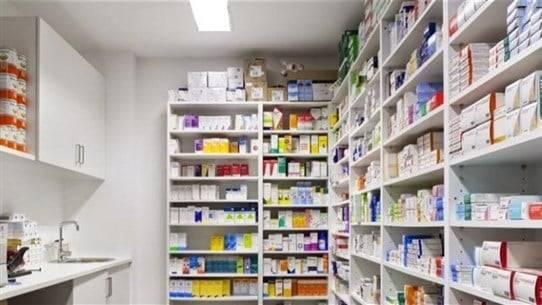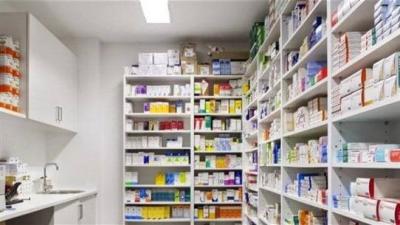Lebanese citizens have succumbed to a more than 25-fold increase in medication prices, hoping for availability, while the authorities did not deliver a fair pharmaceutical plan. Several months have passed since the lifting of subsidies on most medication types, and many subsidized and non-subsidized drugs remain missing. Promises to enhance primary care centers and clinics and support them with treatments for those in need have "fallen by the wayside." In July 2021, the Minister of Public Health launched a plan to rationalize drug subsidies during the government of resigned President Hassan Diab. Minister Firas Al-Abyad then followed up with measures in two phases: the first immediately after taking office in November 2021, and the second before the parliamentary elections in May 2022. Thus, support for importing medications, medical supplies, and infant formula decreased from around $1.2 billion a year to $420 million, divided into monthly batches of $35 million—$10 million for importing essential medical supplies such as kidney treatment tools and heart stents, and $25 million for drugs for chronic and cancer diseases. This has been secured from the Special Drawing Rights (SDR) Lebanon received from the International Monetary Fund.
**Missing Non-Subsidized Medications**
Despite limiting support to types of medications for chronic and cancer diseases, whether domestically produced or imported, these medications are unavailable. Meanwhile, the non-subsidized alternatives are extremely overpriced. The Ministry of Health has maintained only two subsidized medications for each treatment. While the loss of subsidized medications is certainly understandable, the absence of non-subsidized drugs, especially those without alternatives, is perplexing. For example, "There are no asthma treatments or allergy sprays available throughout Lebanon, especially as we enter flu season," says pharmacist Manar Moussa Saleem, noting that they are unavailable from major importing companies like "Mirsaco" and "Abila." Even "Ventolin" arrives in Lebanon from Turkey. According to Saleem, "The shortages extend beyond these medications to include diabetes drugs that have no substitutes."
**Pending Invoices**
It's clear that "medications that have lost subsidies are becoming more available," says Dr. Joe Saloom, head of the pharmacists' syndicate. However, there remains an issue with foreign companies supplying various types of medications due to unpaid invoices from local companies owed to the Central Bank, estimated at around $400 million. The real problem lies in "the complete or partial loss of subsidized medications," due to insufficient allocations that only cater to about 50% of cancer patients, with an even lower percentage for chronic disease medications, Saloom adds. "This pushes us to rely heavily on locally manufactured medications, which now account for about 50 to 60 percent of the pharmaceutical market in Lebanon. However, the Lebanese pharmaceutical industry, which has expanded both in quantity and quality since the onset of the crisis, still requires greater support for raw materials to diversify its offerings and increase production volumes," Saloom continues, stressing the need for a comprehensive pharmaceutical policy.
In addition to pending invoices, many large pharmaceutical companies have reduced their presence in Lebanon or even completely shut down, relying solely on local agents. This is what happened, for example, with the company associated with "Ventolin." This large global company chose to lay off its employees and cease operations amid the deepening economic and financial crises without a solution for the funds stuck in the central bank.
**Market Overflowing with Smuggled and Counterfeit Drugs**
The frustration arising from the lack of medications that have had subsidies lifted is pushing many unlicensed drug "dealers" to import them from neighboring countries, particularly Turkey. Besides costing patients huge sums of money, "this is likely to grow like a snowball and expand further, contributing to the entry of counterfeit drugs alongside legitimate smuggled medications," says Karim Jabara, head of the drug syndicate. "This mirrors what has happened with many missing and costly cancer treatments, where smugglers quickly resorted to bringing in counterfeit medications that are distinguishable by eye. Many hospitals have started to prevent patients from introducing them into their treatments."
**The Smuggled Drug Dilemma**
Health sector stakeholders assert that irregular drugs now constitute a significantly large portion of the Lebanese drug market, if not the largest. The dangers of these smuggled drugs are not limited to their ineffectiveness; they can sometimes lead to patient fatalities and further harm the economy. According to Jabara, these "drugs lack assured quality, are unregulated, do not carry a fair price set by the Ministry of Health, and evade taxes, carrying numerous impurities." He believes there are only two solutions:
- Either securing sufficient funding to support the import of drugs that remain fully or partially subsidized.
- Or allowing the import of medications from abroad under the supervision of the Ministry of Health to ensure they are monitored and subjected to necessary tests, with appropriate pricing established. Only then will we find a way for patients to cope with the costs.
Currently, around 2,000 medications or even fewer are still fully or partially subsidized. Rationalizing support for them is expected to begin soon. However, by that time, smugglers will have established their networks, making it "nearly impossible to uproot them," according to Jabara, who likens the situation to what happened in Iraq.




